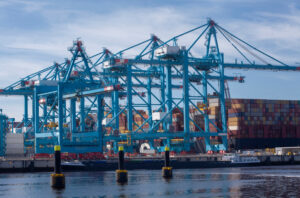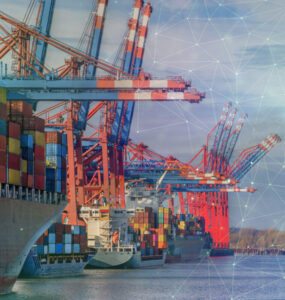The Northwest Ports of Vancouver, Seattle, and Tacoma, and the Northwest Seaport Alliance (NWSA) have committed to phasing out emissions from seaport-related activities by 2050.
The updated Northwest Ports Clean Air Strategy will look to make changes in equipment, fuels, and infrastructure, supporting cleaner air for local communities.
The strategy covers six sectors of port activity: oceangoing vessels, cargo-handling equipment, trucks, harbour vessels, rail, and port administration and tenant facilities.
The NWSA has already made significant strides in reducing emissions since formulating the strategy in 2008.
NWSA’s Clean Truck Program in 2019 decreased emissions from trucks serving international container terminals in Seattle and Tacoma, expected to reduce 33 tons of diesel particulate matter (DPM) annually.
Additionally, the Vancouver Fraser Port Authority is making progress on reaching its air emission reduction targets through incentivising cleaner and quieter vessels though its EcoAction programme.
Fred Felleman, Port of Seattle Commission President and Co-Chair of The Northwest Seaport Alliance, said, “In order for us to meet these ambitious long-term targets that benefit the climate and surrounding communities, it’s essential that the state and federal government partner with the ports to provide progressive policies and financial assistance that create incentives for their adoption prior to regulatory obligations.
“Given the looming climate crisis, it’s also critical to recognize that we are committed to making near-term progress in collaboration with our business and community partners.”
Research from the International Maritime Organization (IMO) found that greenhouse gas (GHG) emissions from shipping increased by 10% between 2012 and 2018 – and are projected to increase by another 50% by 2050 if no additional actions are taken.
The Northwest Ports will each release port-specific plans to implement the strategy vision and objectives across their operations, continuing to report annually on the progress.
Robin Silvester, President and CEO of the Vancouver Fraser Port Authority, added, “As Canada’s largest port, we are committed to supporting the Government of Canada’s goal of achieving net-zero emissions by 2050.
“The Northwest Ports Clean Air Strategy is a key part of our efforts to advance the clean energy transition while protecting the competitiveness of the port and the economic prosperity it delivers to our communities.”









